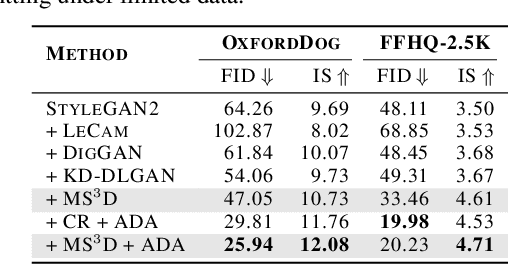Xin Lan
Terminal-Bench: Benchmarking Agents on Hard, Realistic Tasks in Command Line Interfaces
Jan 17, 2026Abstract:AI agents may soon become capable of autonomously completing valuable, long-horizon tasks in diverse domains. Current benchmarks either do not measure real-world tasks, or are not sufficiently difficult to meaningfully measure frontier models. To this end, we present Terminal-Bench 2.0: a carefully curated hard benchmark composed of 89 tasks in computer terminal environments inspired by problems from real workflows. Each task features a unique environment, human-written solution, and comprehensive tests for verification. We show that frontier models and agents score less than 65\% on the benchmark and conduct an error analysis to identify areas for model and agent improvement. We publish the dataset and evaluation harness to assist developers and researchers in future work at https://www.tbench.ai/ .
FABLE: A Localized, Targeted Adversarial Attack on Weather Forecasting Models
May 17, 2025Abstract:Deep learning-based weather forecasting models have recently demonstrated significant performance improvements over gold-standard physics-based simulation tools. However, these models are vulnerable to adversarial attacks, which raises concerns about their trustworthiness. In this paper, we first investigate the feasibility of applying existing adversarial attack methods to weather forecasting models. We argue that a successful attack should (1) not modify significantly its original inputs, (2) be faithful, i.e., achieve the desired forecast at targeted locations with minimal changes to non-targeted locations, and (3) be geospatio-temporally realistic. However, balancing these criteria is a challenge as existing methods are not designed to preserve the geospatio-temporal dependencies of the original samples. To address this challenge, we propose a novel framework called FABLE (Forecast Alteration By Localized targeted advErsarial attack), which employs a 3D discrete wavelet decomposition to extract the varying components of the geospatio-temporal data. By regulating the magnitude of adversarial perturbations across different components, FABLE can generate adversarial inputs that maintain geospatio-temporal coherence while remaining faithful and closely aligned with the original inputs. Experimental results on multiple real-world datasets demonstrate the effectiveness of our framework over baseline methods across various metrics.
Style Quantization for Data-Efficient GAN Training
Mar 31, 2025Abstract:Under limited data setting, GANs often struggle to navigate and effectively exploit the input latent space. Consequently, images generated from adjacent variables in a sparse input latent space may exhibit significant discrepancies in realism, leading to suboptimal consistency regularization (CR) outcomes. To address this, we propose \textit{SQ-GAN}, a novel approach that enhances CR by introducing a style space quantization scheme. This method transforms the sparse, continuous input latent space into a compact, structured discrete proxy space, allowing each element to correspond to a specific real data point, thereby improving CR performance. Instead of direct quantization, we first map the input latent variables into a less entangled ``style'' space and apply quantization using a learnable codebook. This enables each quantized code to control distinct factors of variation. Additionally, we optimize the optimal transport distance to align the codebook codes with features extracted from the training data by a foundation model, embedding external knowledge into the codebook and establishing a semantically rich vocabulary that properly describes the training dataset. Extensive experiments demonstrate significant improvements in both discriminator robustness and generation quality with our method.
MS$^3$D: A RG Flow-Based Regularization for GAN Training with Limited Data
Aug 20, 2024



Abstract:Generative adversarial networks (GANs) have made impressive advances in image generation, but they often require large-scale training data to avoid degradation caused by discriminator overfitting. To tackle this issue, we investigate the challenge of training GANs with limited data, and propose a novel regularization method based on the idea of renormalization group (RG) in physics.We observe that in the limited data setting, the gradient pattern that the generator obtains from the discriminator becomes more aggregated over time. In RG context, this aggregated pattern exhibits a high discrepancy from its coarse-grained versions, which implies a high-capacity and sensitive system, prone to overfitting and collapse. To address this problem, we introduce a \textbf{m}ulti-\textbf{s}cale \textbf{s}tructural \textbf{s}elf-\textbf{d}issimilarity (MS$^3$D) regularization, which constrains the gradient field to have a consistent pattern across different scales, thereby fostering a more redundant and robust system. We show that our method can effectively enhance the performance and stability of GANs under limited data scenarios, and even allow them to generate high-quality images with very few data.
 Add to Chrome
Add to Chrome Add to Firefox
Add to Firefox Add to Edge
Add to Edge